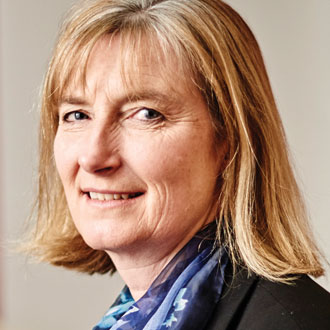‘It is neither fair nor reasonable to blame GPs for the crisis in A&E’

It is neither fair nor reasonable to blame GPs for the crisis in A&E when clearly it is a complex whole-system issue with its roots in a workforce shortfall and the longest financial squeeze in the history of the NHS and social care.
During the Health Committee’s inquiry into primary care it was clear that if you are asking GPs to staff co-located clinics in A&E as well as 8-8 routine services seven days a week, there simply isn’t the workforce capacity to do this in all areas without undermining the capacity to staff urgent out of hours and weekday in hours services.
In some rural areas patients could end up having to travel further to visit a Sunday surgery than an existing out of hours provider. We have also yet to properly address the issue of sharing records safely and efficiently between federated practices. We need CCGs to be able to plan the most effective solution for their local area not a one-size-fits-all approach imposed from above.
The National Audit Office report highlighted that the costs of providing out-of-hours routine appointments is very significantly higher than the cost of providing an in-hours routine appointments. When finances are tight, it is especially important to be realistic about what else could be delivered with the same money.
I think the comments from Number 10 demonstrate a misunderstanding of the pressures on primary care and that their work goes far beyond sitting face to face in surgeries. Visits, complex administration, reviewing results, liaising with colleagues and a host of other tasks.
Primary care has changed and in particularly the age profile of patients and the complexity of their long term conditions. Many more people are now cared for in the community who would previously have been cared for within inpatient or specialist settings but the funding to match did not follow into primary care. Government should focus attention on supporting the forward view for general practice rather than undermining morale or taking a heavy handed approach to seven day routine services.
A cross party committee of the House of Lords is shortly expected to report on long term sustainable funding for the NHS and social care and we should closely examine their findings alongside the work of others including the Barker Commission.
We also need to make it clear that there are consequences if we do nothing. The best chance of success will come with a cross-party approach to providing sustainable long term funding. I think it is the right time in the political cycle for that to happen and we need urgent action given the scale of the ongoing demographic and demand challenge.
I will continue to meet with colleagues to try to set out the complexity and pressures not only in primary care but across the entire health and care sector and to press for a better political response.
Dr Sarah Wollaston is the Conservative MP for Totnes in Devon, the chair of the House of Commons health committee and a former GP.









